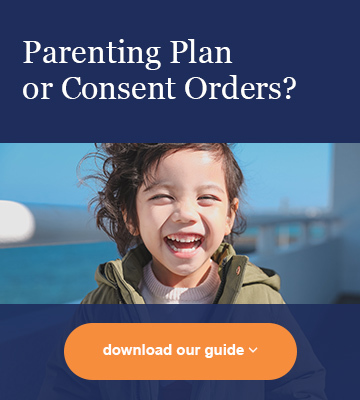
When a spousal relationship breaks down and there are children involved, there are few more fraught issues than those involving the children’s future living arrangements. This is particularly difficult when a child has a firm view about which parent he or she wants to live with, either all or most of the time.
Contrary to some popular misconceptions, a child’s specific age is not one of the determinants in deciding where the child will live when a court needs to hand down a decision in relation to parenting arrangements. Instead, a number of the key factors the court will assess in deciding the living arrangements are:
- the child’s maturity;
- his/her level of understanding of the overall situation;
- whether his/her expressed wishes about where to live are well informed;
- whether or not the child has been unduly influenced (usually by one or other of the parents, but also potentially by relatives, counsellors, etc.).
How does the process work?
The two main considerations for a family court are that a child/children maintain a meaningful relationship with both of the parents, and that children are protected from physical or psychological harm.
In terms of taking a child’s wishes into account, the court will generally rely on a ‘family report’ from a court consultant or trained counsellor, therapist or psychologist who has conducted an interview with the child.
The report writer will interview and observe the parents, the children and any other people living in the same household as the children, such as step-parents and step-siblings if the parent has a new partner. They will usually ascertain the child’s wishes and ask questions designed to aid assessment of the child’s maturity and level of understanding. The family report will then be prepared for the court with recommendations about the future parenting arrangements the judge should consider.
These are far from easy issues to decide. The difference in maturity between two siblings, for instance, may mean the court views the desire of the older sibling to stay with one parent as persuasive while the same view held by the younger sibling may not be given as much weight by the court. While the court will always be reluctant to separate siblings who demonstrate a strong attachment to one another, it is not likely to refuse the wishes of a sibling adjudged to be mature and insightful about the overall situation.
The role of an independent children’s lawyer
In some situations the court will appoint an Independent Children’s Lawyer to make an independent assessment of the child’s wishes and circumstances. This person will gather information from sources including teachers, doctors, psychologists, counsellors, police and child welfare authorities before making a decision whether to interview the child or not.
This appointment will often be made in cases where:
- there are allegations of physical, sexual or psychological child abuse;
- there is ongoing intractable conflict between the parents;
- the child is alienated from one or both parents;
- there are cultural or religious differences affecting the child;
- there is a proposal to separate siblings into different households or take a child overseas.
Out-of-court options
Avoiding the cost and trauma of court proceedings should be the first aim in any family breakdown situation. An experienced legal professional can provide helpful advice on family dispute resolution options so that going to court becomes only a last option. These options can include taking account of the wishes of children through inclusive mediation, counselling and other means.
Family break-ups are stressful and all-consuming. Assistance from legal professionals with expertise in this area will help clarify your options and the best way forward, particularly in taking account of the wishes of children so that a resolution which protects their welfare and helps them maintain a relationship with both parents, where possible, is reached.

